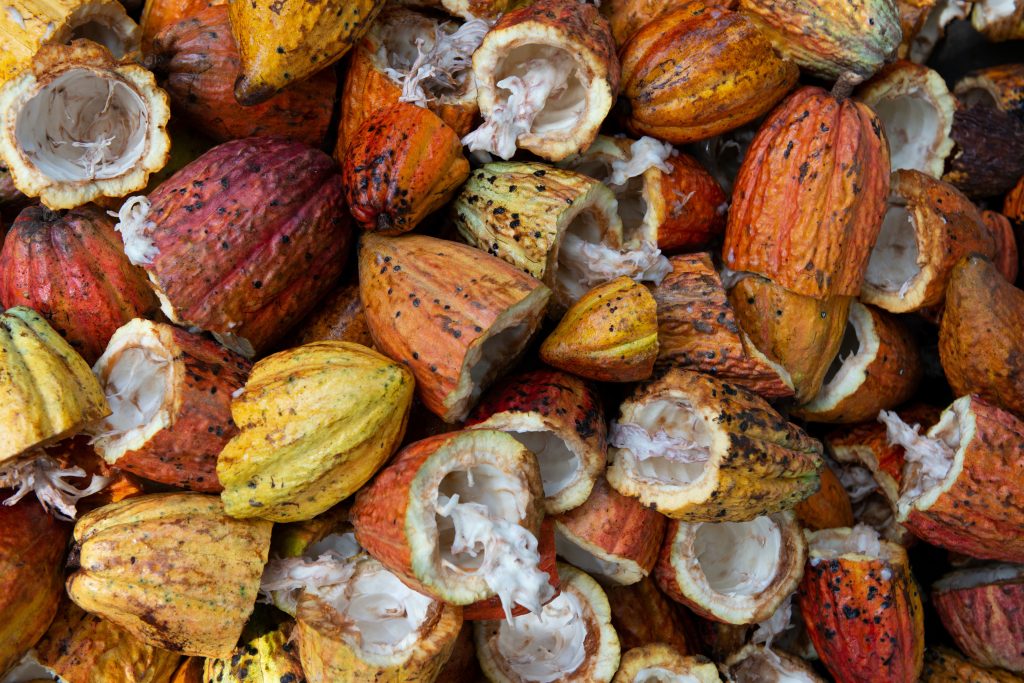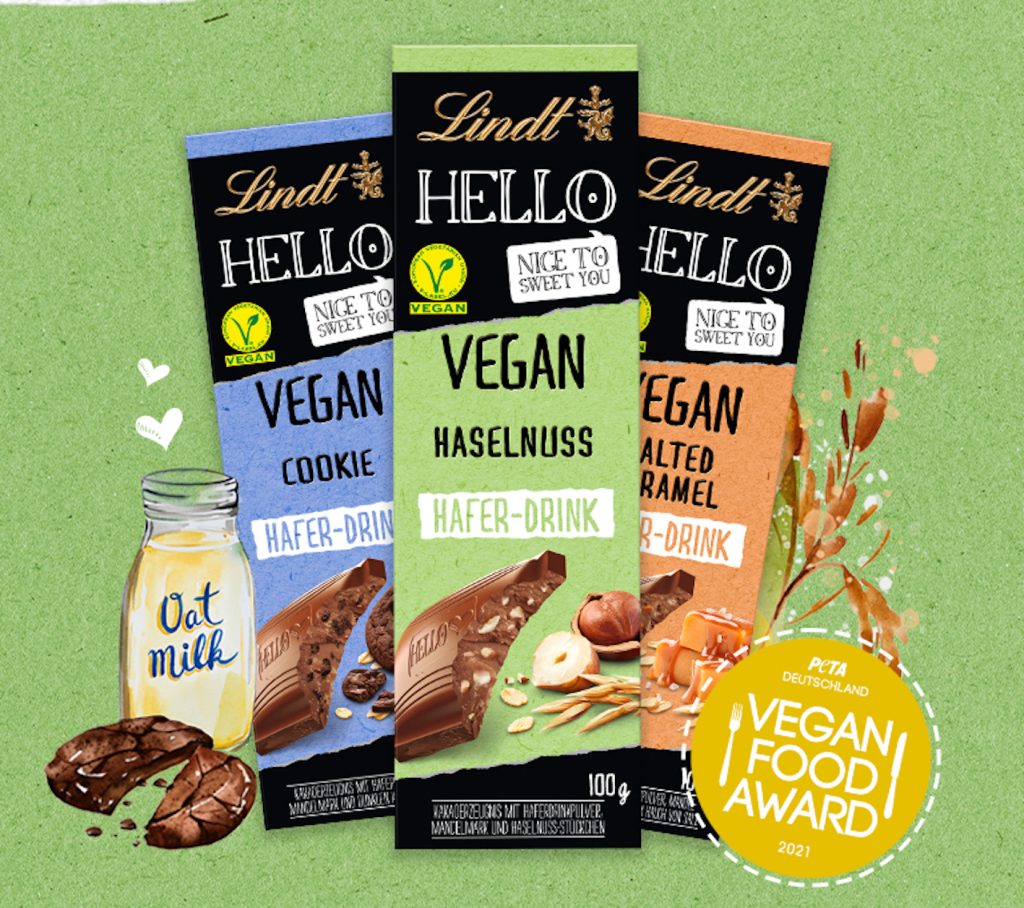Learn these market challenges to boost your plant-based chocolate sales
Although the plant-based chocolate sector is expanding — as we learned in parts I and II of this article series — it faces several barriers and challenges that threaten to disrupt growth.
These include supply issues, competition, cost, labeling restrictions, and the big hitter — taste.
Fortunately, with the right strategy, you can work to overcome many of the industry’s greatest challenges! Let’s show you how.
Diminishing cocoa supplies
Weakening supplies of cocoa beans threaten the entire chocolate industry. The world’s major cocoa-producing countries are Ghana, the Ivory Coast, and Indonesia.1 According to Global News Wire, these countries have been struggling to keep up with the rising demand for chocolate products, leading to higher prices.

Global warming and changing weather patterns have further diminished supply, with crop yields declining in recent years.2
Plant-based chocolate manufacturers should aim to increase partnerships and secure supplies of cocoa from multiple sources, to safeguard production capacity.
Increasing competition from other confectionery products
Overall chocolate consumption has decelerated in some developed markets, like Europe and North America, while growth in emerging markets has also begun to slow.
Meanwhile, consumption of other confectionery products, such as sweets and chewing gum, has rapidly been gaining momentum, especially in the plant-based space where we see the emergence of new and innovative plant-based confectionery brands.
This places pressure on chocolate manufacturers to differentiate their products and appeal to new consumers. Plant-based brands likely won’t experience this challenge as heavily as conventional chocolate brands, since plant-based chocolate products are inherently novel to many consumers, offering unique taste experiences.
However, all brands should focus on creating an array of new products with innovative tastes and flavors in exciting new formats to attract consumers looking for unique confectionery products.
Plant-based chocolate industry whitespaces
Tap into these whitespaces to offer something unique:
- Easter eggs
- Selection boxes/filled chocolates
- Unusual flavors and filling combinations
- CBD chocolate with health benefits
- White chocolate
High cost
In ProVeg’s Price Parity Report, 70% of consumers agreed that plant-based food products generally cost more than animal-based products, which suggests that consumers perceive plant-based alternatives as being more costly and harder to afford.3 Likewise, the Smart Protein Project found that for over half of Europeans (54%), cost is the main barrier to eating more plant-based products. 4

Reducing the costs of your plant-based chocolate products is essential in order to increase consumer adoption. Work together with your suppliers, manufacturers, brands, and retailers to bring down the final cost of plant-based chocolate to ensure that it remains affordable for your consumers.
Taste disparities
When it comes to certain varieties of plant-based chocolate, like ‘milk’ chocolate products, analysis of consumer ratings suggests that existing products fall short in terms of taste, compared to other plant-based chocolate products. This suggests that great improvement and innovation are needed in this area.

Plant-based chocolate producers should optimize their products for taste5 — consistent R&D is required, while a taste-and-feedback service (like ours) is essential for ensuring your final product is as tasty as it can be.
Labeling restrictions
Worldwide, various labeling restrictions prevent plant-based product brands and products from using ‘conventional’ meat- and dairy-orientated wording. This is an issue that is now touching the plant-based chocolate sector.
Plant-based products have recently come under heightened scrutiny in the UK, with newly proposed Trading Standards guidelines preventing the use of words like ‘milk’ and ‘mylk’ on products and in brand names.6
The ban would shatter the level playing field between UK plant-based and dairy-based chocolate categories (plus other sectors), reduce consumer awareness, add costs to businesses, and limit innovation.

Irrespective of your market location, it’s important to keep in mind potential restrictions that might be on the horizon and consider labeling accordingly. Many companies already do this, by simply stating ‘almond’ on a wrapper for almond milk-based chocolate, to avoid labeling issues with ‘m*lk’. For the bigger picture, support initiatives and campaigns that aim to reduce labeling restrictions in your target market.
You can support Palm PR’s petition against the potential UK labeling restrictions, here.
The New Food Hub will keep you updated on this issue, and we aim to bring you more in-depth insights on this matter in the coming weeks.
Key insights
New Food Hub makes the following recommendations for businesses looking to overcome barriers and leverage opportunities in the plant-based chocolate sector:
- Increase partnerships and secure supplies of cocoa from multiple sources to safeguard production capacity.
- Focus on creating an array of new products with innovative tastes and flavors in exciting formats to attract consumers looking for unique confectionery products.
- Reduce the costs of your plant-based chocolate products to increase consumer adoption. Work together with suppliers, manufacturers, brands, and retailers to bring down the final cost of plant-based chocolate to ensure that it remains affordable.
- Optimize plant-based chocolate products for taste — consistent R&D is required, while a taste-and-feedback service is essential for ensuring a tasty final product.
- Keep in mind potential labeling restrictions that might be on the horizon and consider labeling accordingly. Support initiatives that aim to reduce labeling restrictions in your target market.
If you missed parts I and II of this article series, make sure to catch them to learn more about plant-based chocolate. For more support on your product strategy, get in touch with our experts at [email protected].
References
- World Chocolate Market is Expected to Grow at a Moderate Pace, (2022). IndexBox Inc. Available at: https://www.globenewswire.com/en/news-release/2022/12/16/2575678/0/en/World-Chocolate-Market-is-Expected-to-Grow-at-a-Moderate-Pace-to-263B-by-2030-IndexBox.html. Accessed 2023-03-10.
- World Chocolate Market is Expected to Grow at a Moderate Pace, (2022). IndexBox Inc. Available at: https://www.globenewswire.com/en/news-release/2022/12/16/2575678/0/en/World-Chocolate-Market-is-Expected-to-Grow-at-a-Moderate-Pace-to-263B-by-2030-IndexBox.html. Accessed 2023-03-10.
- Plant-based price parity consumer report, (2023). ProVeg International. Available at: https://corporate.proveg.com/report/plant-based-price-parity-uk/. Accessed 2023-03-22.
- Smart Protein (2021): What consumers want: A survey on European consumer attitudes towards plant-based foods. Country specific insights. European Union’s Horizon 2020 research and innovation program (No 862957) https://proveg.com/what-we-do/corporate-engagement/consumer-attitudes-plant-based-food-report/ Accessed 2021-12-02.
- Biting into the vegan chocolate market, (2020). Abillion. Available at: https://www.data.abillion.com/post/biting-into-the-vegan-chocolate-market. Accessed 2023-03-10.
- Dairy alternatives name band would be devastating, experts warn, (2023). The Grocer. Available at: https://www.thegrocer.co.uk/dairy/dairy-alternatives-name-ban-would-be-devastating-suppliers-warn/679576.article. Accessed 2023-07-11.



